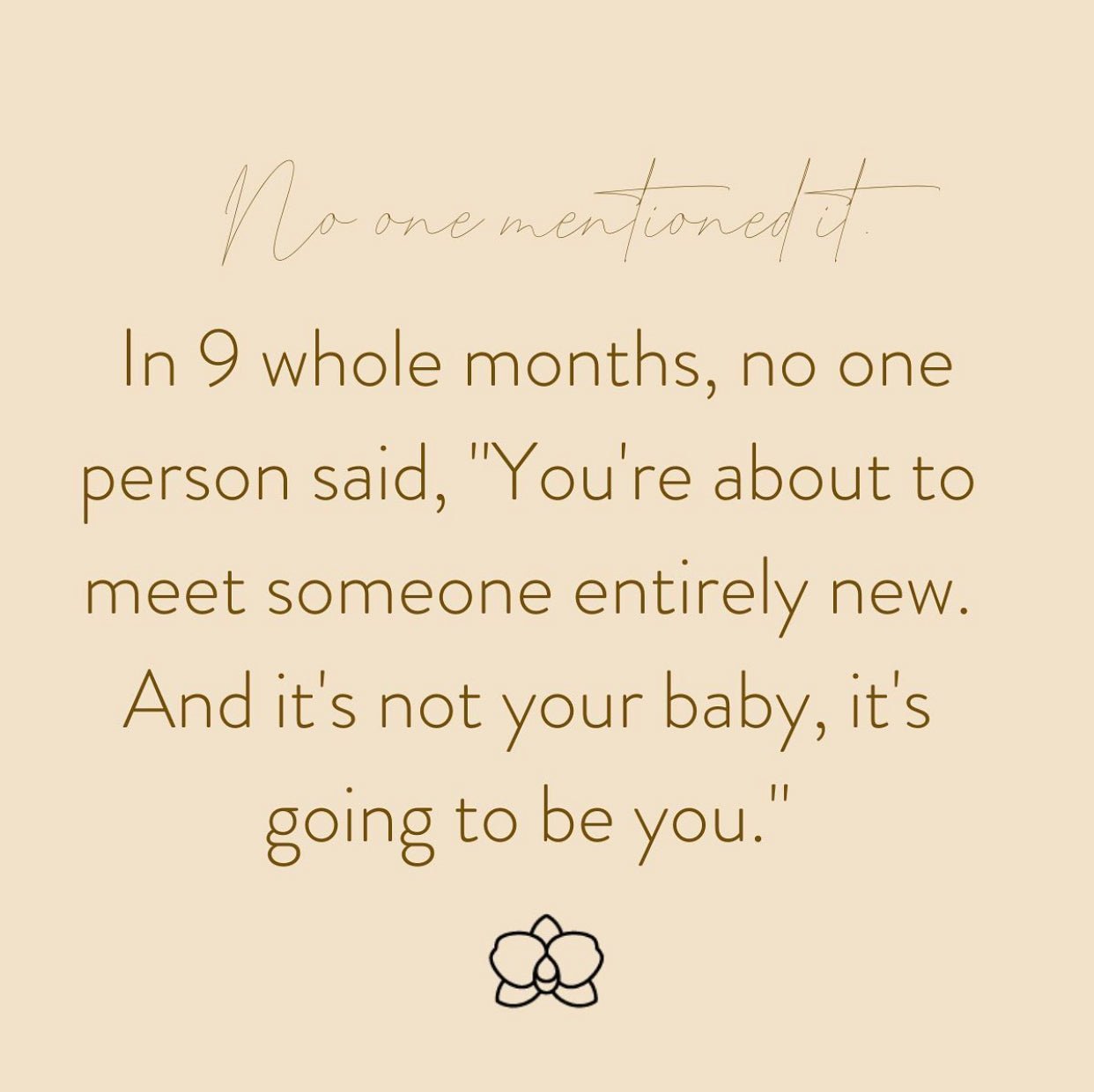Becoming a mother is intense. The fourth trimester is intense. There is the joy of meeting and falling in love with your baby and all the beautiful “firsts” of motherhood that are sure to come. But the fourth trimester is also hard—sometimes, very hard. Our bodies are changing in hundreds of ways, all while we are adjusting to taking care of a newborn.
The truth is that many people don’t learn about the fourth trimester until they are in the fourth trimester. And, that’s too late.
That’s why we were thrilled to partner with Stanford Children’s Health, who sponsored the Fourth Trimester Conversation on Motherly Live! We met with experts who shared valuable information about how to prepare and thrive during this stage. Catch the full episode on Motherly’s IGTV.
Here are just a few of the awesome learnings shared during the event:
Stephanie Dixon, Doula and Childbirth Educator, on having your best birth during COVID-19:
Dixon: The [most important thing] is preparation…. Right now, birthing—whether it’s at home, or in a hospital or at a birth center—can present some different challenges [and]… we’re finding [that] preparing mentally, emotionally, spiritually, physically in advance will make all of the difference… It’s just understanding what’s happening with your space. But also, understanding what can come during labor. What are the different stages of labor? What can we see happening with the body of the birthing person, and what does that mean in order to support them?
Dixon: Taking care of your health is important… making sure that you’re nourished is so important, and having the right food to eat for the birthing person, and also for the partner. On average, labor can be anywhere between two to three days, and sometimes a little bit longer. [Taking care of your health is about] making sure that your mind is being stimulated as well as your body.
Deundra Hundon, Doula, on thriving through the fourth trimester:
Hundon: For every labor and birth book you read, or article or podcast, read one about postpartum care. Listen to a podcast about postpartum care. The Fourth Trimester Podcast by Esther Gallagher is a great podcast.
Hundon: The second thing [is to create] an actual postpartum plan. The third little tip [is to]…think about really letting your friends and family know upfront… what postpartum means [to you]. It means you’re not going to be doing anything but picking up your baby, feeding your baby, taking a shower and going back to sleep. Set that expectation. Because if we don’t tell people what we need, they may assume, “Oh, you’re at home. Your laptop is sitting there. I can send you an email, right? You’re going to still answer, right?” No, I’m not answering anything during postpartum… Set that expectation really clearly.
Hundon: My last tip would simply be if you’re not sure what to do, ask [for help].
Dr. Jennifer Kaufman, pediatrician, on what to do when your baby is crying.
Kaufman: In the first couple of weeks when babies are born, we will frequently give parents the information to try to avoid crying. But as babies get older, what we find is that it’s not always possible to preempt crying…. For a lot of moms these days, when your baby is crying, the first thing that goes into your head is, ‘Oh my God, is there something wrong?’ That is absolutely normal. Your baby is going to cry sometimes. And we are going to have to try to figure out what’s causing it— [though] sometimes we’re actually not going to be able to.
Dr. Kaufman advises that when your baby is crying, always start by seeing if they are hungry. Next, check to see if their diaper is dirty (though often babies don’t actually mind having a dirty diaper). It’s also important to consider their temperature—a baby that is too warm or cold will often cry. She shared an unexpected reason that a baby might cry, as well.
Kaufman: Sometimes babies can be crying because something is pinching them, or a really common one that we see is [that one of your] hairs can actually get wrapped around your baby’s finger, [or] toe. We call it a hair tourniquet. And those are crazy painful. So you want to just take a look at your baby’s whole body.
Lastly, Kaufman discussed the importance of taking care of yourself during stressful times when your baby just won’t stop crying.
Kaufman: And then if that still doesn’t work… put your baby down for two or three minutes. Keep in mind that babies are very in tune with our own anxiety level… They can pick up if we are nervous, if we are upset, if we are feeling frustrated or anxious—and that’s going to make your baby cry. So when you’ve been through this whole process and your baby’s crying and you’ve tried all of these things and it just isn’t getting better, you’re probably feeling pretty anxious.
Kaufman: Put your baby down someplace safe, like a crib or a bassinet… and then go ahead and take a 2-minute break. Get yourself some water. Maybe take a couple of deep breaths, do yoga breathing, something to try to calm you down and make you feel better.
Crystal Karges, Registered Dietician Nutritionist, on taking care of your postpartum body:
Karges: New moms are bombarding damaging messages about dieting, what I call dieting propaganda; she’s feeling so much pressure to lose weight and change her body… And you know what? Postpartum body changes are difficult… It can be really hard to get used to after having a baby. But I think it’s so important for moms to step back and see the big picture of what’s happening here. You grew a baby with your body and birthed that baby into the world. It’s like you trained for and ran the most ultimate marathon.
Karges: Think about body kindness—treating your body with kindness and respect. I think when moms hear this idea of you need to love your body, or you should be so grateful for your body, that can be really arbitrary and sometimes out of reach for new moms who just had a baby and are trying to reconcile all that their bodies have gone through. Remember that it’s okay to feel uncomfortable in your body, but to also feel grateful for your body and everything that it’s brought you… It’s okay to feel those things simultaneously. One doesn’t cancel out the other.
Karges: Think about nourishing your body… You need nutrition to help your body replenish all the nutrients that have been lost in order to support your recovery and your healing. And not just that, but also your mental health… if there are any nutrient deficiencies, this can actually be a risk factor for mental health conditions in postpartum, like postpartum depression.
Sharen Medrano, International Board Certified Lactation Consultant, on preparing for breastfeeding and overcoming obstacles:
Medrano: Like anything else we do in life, some level of preparation does ease the mind and help us feel more at ease… So in terms of preparation, something that may not come to mind… is to meet with another breastfeeding mother before your baby comes. And that can come via a breastfeeding group… even a virtual visit with a lactation consultant or a certified lactation counselor… This virtual or in-person visit can answer a lot of our questions and put our minds at ease once the baby’s here.
You can also ask for a breast assessment before your baby is born.
Medrano: A breast assessment allows someone who sees breasts all the time to tell you, “You know what? You may have a little bit of an inverted nipple…“ And that doesn’t mean that breastfeeding is going to be awful or it’s going to be off to a bad start. But at least you can do some preparation and you’ll get some information before the baby is here.
I asked Medrano to share the top concern faced by breastfeeding mothers.
Medrano: Babies need so much of us. For example, when it comes to breastfeeding, I often meet with babies who are gaining well. The mom is making plenty of milk, but the baby needs a lot of holding and a lot of comforting. And sometimes we’re shocked to understand how much they want us to be around them.
Medrano: So I think that’s something that comes to a surprise for a lot of the moms I meet with: That babies with an immature nervous system during the fourth trimester need help calming [down] and feeling at ease… If you think of your pregnancy, you spend nine months holding this baby…all day long; this baby’s hearing your heartbeat, walking with you, going to the supermarket, wherever you’re going. And then all of a sudden this baby’s born. And then they’re put in a bassinet, which I know needs to happen sometimes. But they’re like, “What just happened here?… I’m used to constant comfort, constant someone holding me.”
Medrano: So it’s not to say that the baby will be on you 24 hours [a day,] but it helps us to understand that with an immature nervous system, babies need more than just food. They need comfort and they need holding.
This article originally appeared on Motherly and written by Diana Spalding
the guide

From PCOS to perimenopause, hormonal shifts happen at every life stage. Learn why hormone-safe skincare is a must—even if you’re not expecting.

Whether you’re pregnant, postpartum, or perimenopausal, choosing the right ingredients makes all the difference. In this guide, we explain why endocrine disruptors matter, spotlight clean actives a...

A deep-dive of our Brightening Essence. A dual-action toner and serum that gently exfoliates and hydrates to reveal a vibrant, more even complexion. Formulated for hormonally shifting skin, it help...








Leave a comment
All comments are moderated before being published.
This site is protected by hCaptcha and the hCaptcha Privacy Policy and Terms of Service apply.